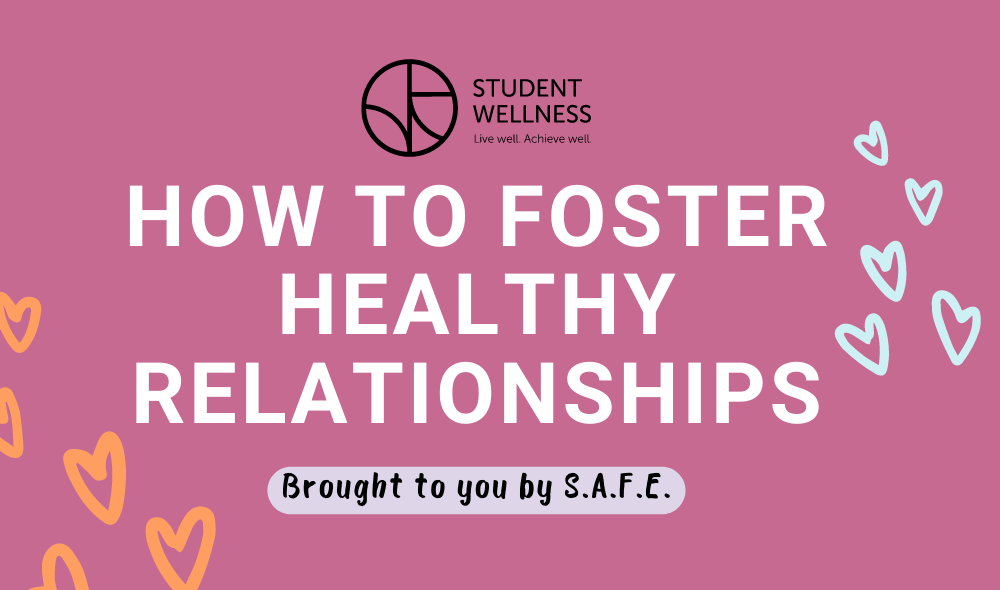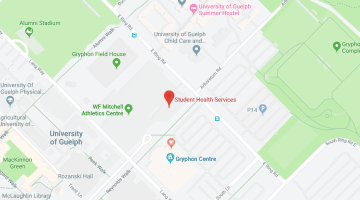
This content was developed by our Sexual Assault Free Environment (SAFE) Student Peer Team [1]
What constitutes a healthy relationship?
Most relationships aren't purely 100% healthy or unhealthy. Many relationships have both healthy and unhealthy qualities. Relationship "healthiness" is not a binary. There isn't a single defining trait that distinguishes an unhealthy relationship from a healthy one. What's important is that each relationship can identify the qualities that are important to them and work together to achieve them.
What are some traits of a healthy relationship?
Healthy relationship qualities can look many different ways. At their core, healthy relationship traits involve trust, respect, honesty and valuing our needs as well as our partner's needs.
- Feeling respected and giving respect.
- Establishing and honouring boundaries and consent.
- Feeling comfortable approaching your partner with an issue, even if it's something they may not want to hear.
- Taking accountability.
- Expressing concerns without being critical.
- Working as a team to resolve conflicts, not working against each other.
- Working to compromise to balance your needs and your partner's needs.
How can I work to make my relationship healthier?
Working towards a healthier relationship requires effort from all those involved. Some ways we can work towards healthier relationships can include valuing:
- Communication: If your partner does something that bothers you, communicate that they've crossed a boundary in a respectful manner.
- Honesty: Try to have honest conversations with your partner about your strengths and opportunities for improvement.
- Showing an Effort: Make sure your partner knows that you are always invested in improving yourself and your relationship.
How can I value consent in a relationship?
Consent is critical in every relationship and at every stage. Long-term relationships are not an excuse to forgo consent. We can value consent in our relationships by remembering the “I’M SAFE” model of consent (Credit: Angel Russell, MS, CSE / Professorsex.com)
Resources & Support:
If you or someone you know has been impacted by sexual or gender-based violence, you are not alone and supports are available. You can connect with the Sexual and Gender-Based Violence Support Coordinator who provides coordinated support and resources following experiences of sexual and gender-based violence. They also provide consultation services to faculty and staff responding to disclosures of sexual violence. Anyone can refer a friend or themselves to the Coordinator by emailing svinfo@uguelph.ca
You do not need to disclose or make a report in order to access support. Students are also welcome to bring a support person with them to the planning or support meeting. For more information about supports available, please visit our website [2].
- UofG Sexual and Gender-Based Violence Support Coordinator [2]
- UofG Counselling Services [3]
- Guelph-Wellington Women in Crisis 24-Hour Crisis Line: 1-800-265-7233
Self-help resources:
- Learn about Sexual Violence Support on Campus [4]
- Learn How to Support a Friend [5]
- Cultivating Consent Culture [6]
For more information about how to get involved in on-going opportunities to prevent Sexual and Gender-Based Violence, check out our Sexual and Gender-Based Violence Training Opportunities [7].

